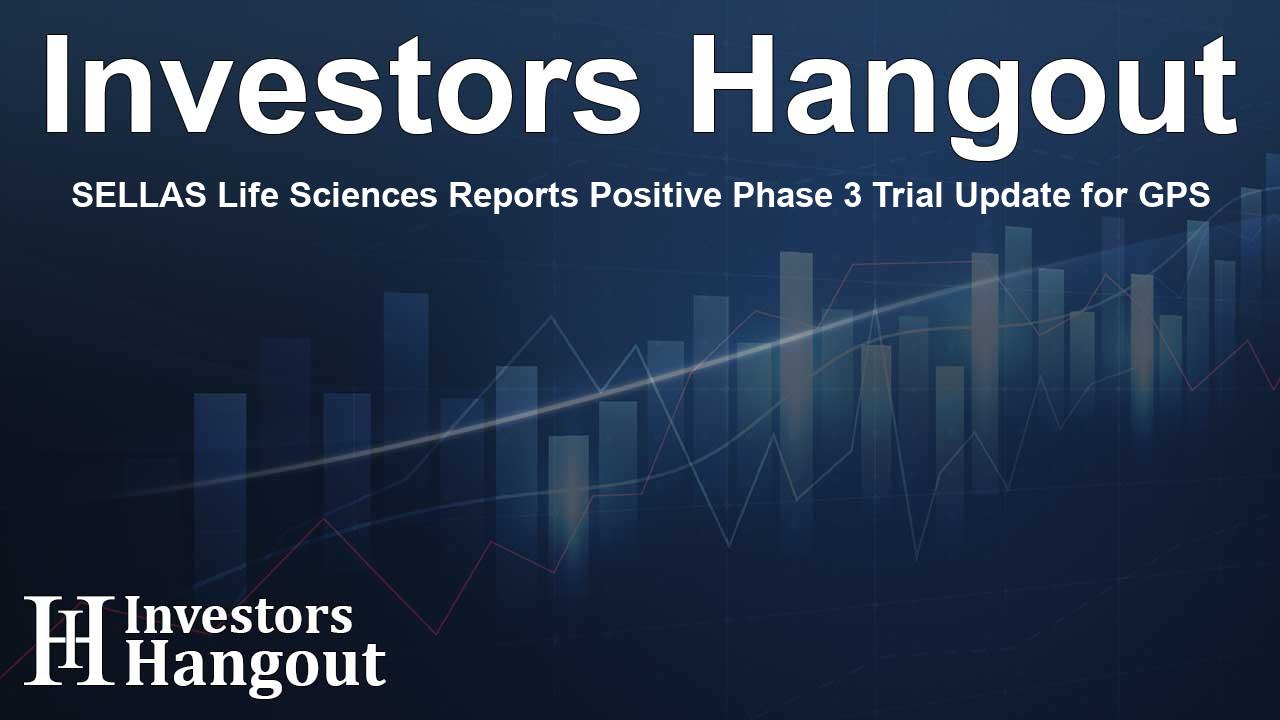SELLAS Life Sciences Reports Positive Phase 3 Trial Update for GPS

Positive Recommendations for Selling Life Sciences' Phase 3 Clinical Trial
In a remarkable advancement for SELLAS Life Sciences Group, Inc. (NASDAQ: SLS), the Independent Data Monitoring Committee (IDMC) has provided encouraging news regarding the ongoing Phase 3 REGAL trial focusing on galinpepimut-S (GPS) for patients with acute myeloid leukemia (AML). This milestone follows a pre-specified analysis affirming the trial's safety and efficacy, allowing it to continue without any modifications.
SELLAS Life Sciences is firmly dedicated to creating innovative treatments that aim to transform cancer care. With the IDMC's endorsement, the anticipation grows as patients and stakeholders await the final analysis, which is expected upon the occurrence of 80 events. This crucial moment will further showcase GPS’s potential in enhancing the survival rates for AML patients.
Significance of the Independent Data Monitoring Committee’s Review
The IDMC's evaluation reaffirmed that the balance between risks and benefits associated with GPS favors continued investigation under the current trial conditions. Their review emphasized that no safety issues were detected, and the efficacy data aligns with what was anticipated. This positive feedback underscores the potential role of GPS in treating AML, a disease known for its aggressive nature and critical treatment challenges.
Enrollment Success and Patient Demographics
The REGAL trial successfully completed enrollment earlier in 2024, with a total of 126 patients participating. Notably, study sites across the U.S. and Europe contributed to this enrollment, with the U.S. leading the count. This diversity in trial locations strengthens the study's robustness and broadens the insights that can be drawn from the results.
A Closer Look at the REGAL Trial
The Phase 3 REGAL trial, identified by the clinical trial number NCT04229979, is centered around assessing GPS in AML patients who had previously reached complete remission after second-line salvage therapy. The main goal of the trial is to evaluate overall survival, an essential metric in clinical cancer treatment studies. The IDMC plays a crucial role in overseeing the trial's integrity, ensuring that both patient safety and the scientific quality of the study are maintained throughout the process.
What Makes GPS Unique?
SELLAS’s GPS is a highly innovative therapeutic approach licensed from the prestigious Memorial Sloan Kettering Cancer Center. This treatment specifically targets the WT1 protein, which is present in various tumor forms. The adaptability of GPS allows for its use both as a standalone therapy and in conjunction with other treatments, thus addressing a wide range of malignant conditions.
SELLAS Life Sciences Group's Commitment to Innovation
In addition to GPS, SELLAS Life Sciences is working diligently on SLS009, a prospective small molecule CDK9 inhibitor that stands to deliver improved outcomes with lower toxicity compared to existing treatments. Data indicate that SLS009 may demonstrate significant efficacy in AML patients, particularly those with adverse prognostic factors such as ASXL1 mutation.
SELLAS is committed to advancing therapies that can fulfill unmet medical needs within the oncology space. Their innovative platform drives progress toward effective cancer treatments that could change many lives.
Frequently Asked Questions
What is the focus of the REGAL trial?
The REGAL trial primarily assesses the effectiveness of galinpepimut-S (GPS) in treating acute myeloid leukemia (AML) patients who achieved complete remission after second-line salvage therapy.
What were the results of the IDMC's review?
The Independent Data Monitoring Committee reviewed the trial and recommended continuing without modifications, highlighting a favorable risk-benefit profile and no identified safety concerns.
How many patients were enrolled in the REGAL trial?
A total of 126 patients were enrolled in the REGAL trial, with significant participation from both U.S. and European study sites.
What is GPS and its therapeutic target?
Galileo galinpepimut-S (GPS) targets the WT1 protein found in various tumor types, representing a promising therapeutic option for treating cancers.
What other programs is SELLAS developing?
SELLAS is also focused on the development of SLS009, a first-of-its-kind small molecule CDK9 inhibitor that aims for improved efficacy with reduced toxicity.
About The Author
Contact Kelly Martin privately here. Or send an email with ATTN: Kelly Martin as the subject to contact@investorshangout.com.
About Investors Hangout
Investors Hangout is a leading online stock forum for financial discussion and learning, offering a wide range of free tools and resources. It draws in traders of all levels, who exchange market knowledge, investigate trading tactics, and keep an eye on industry developments in real time. Featuring financial articles, stock message boards, quotes, charts, company profiles, and live news updates. Through cooperative learning and a wealth of informational resources, it helps users from novices creating their first portfolios to experts honing their techniques. Join Investors Hangout today: https://investorshangout.com/
The content of this article is based on factual, publicly available information and does not represent legal, financial, or investment advice. Investors Hangout does not offer financial advice, and the author is not a licensed financial advisor. Consult a qualified advisor before making any financial or investment decisions based on this article. This article should not be considered advice to purchase, sell, or hold any securities or other investments. If any of the material provided here is inaccurate, please contact us for corrections.
